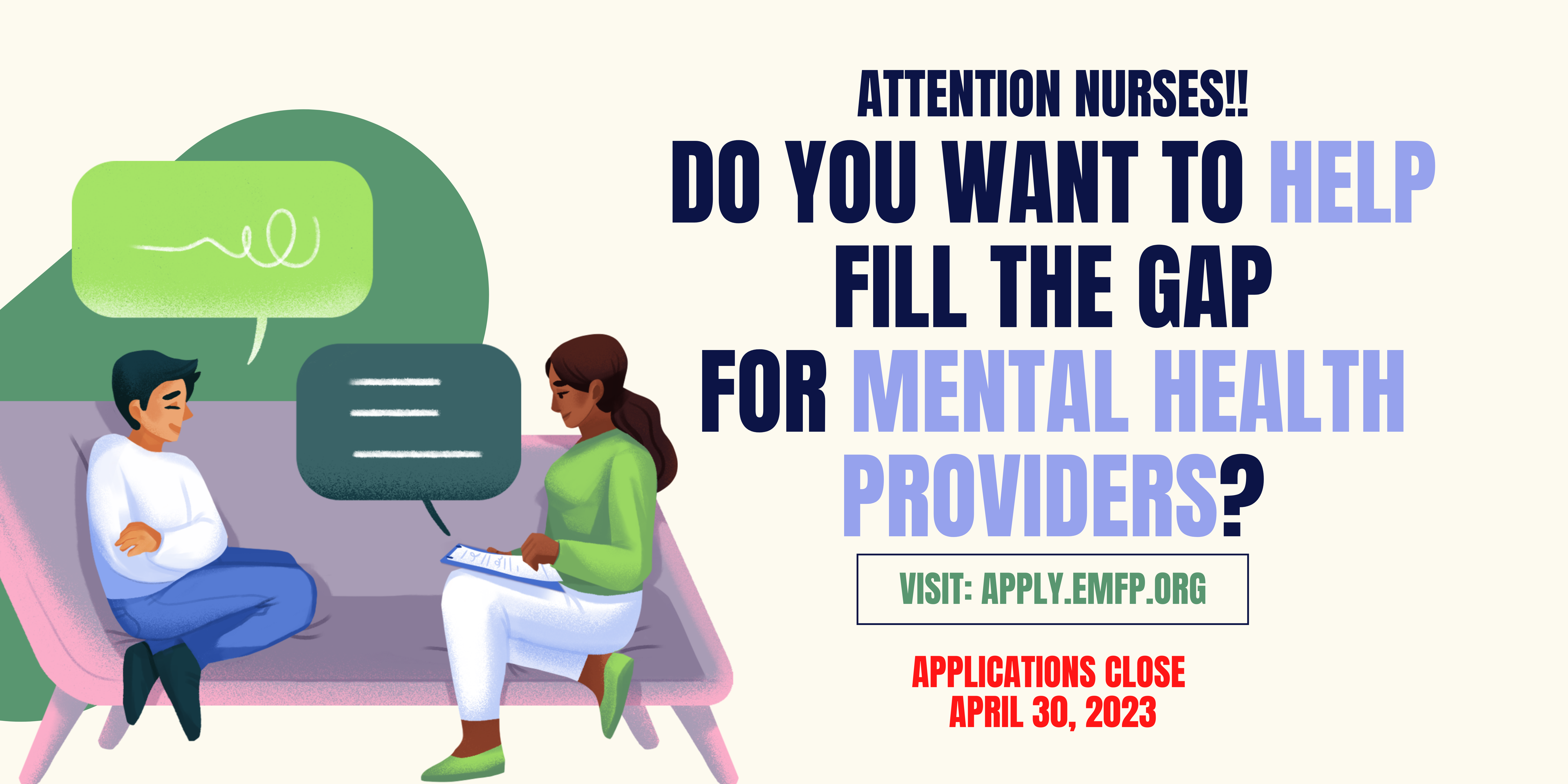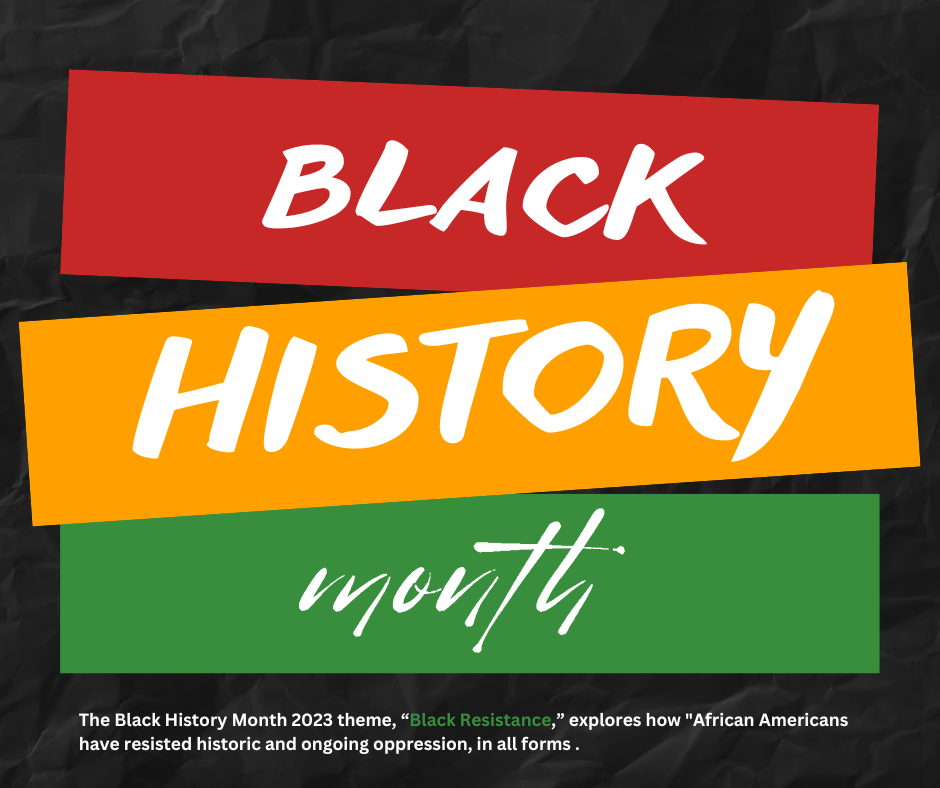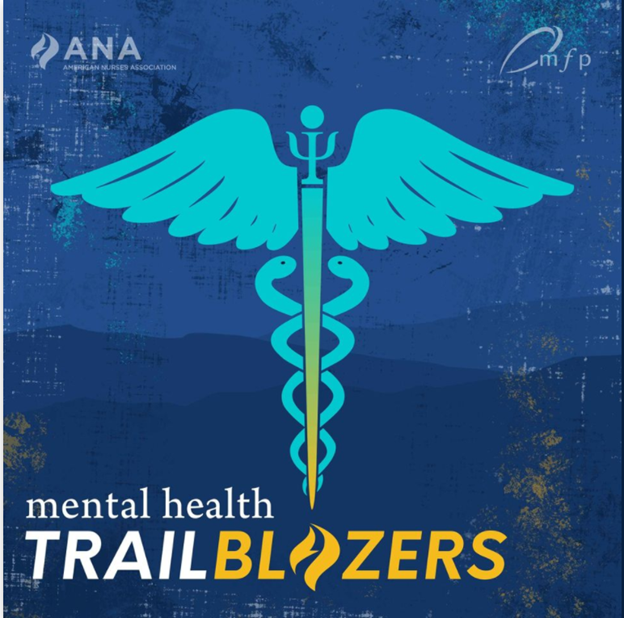Each week a quote is shared for your consideration. Some quotes might offer comfort, hope, a challenge, a chuckle, or inspiration. You may or may not agree with the quote, but it is offered simply to help you reflect and ponder.
The most common way people give up their power is by thinking they don't have any.
– Alice Walker
The MFP is an initiative staffed by ANA with funding from SAMHSA, making fellowships available to ethnic and racial psychiatric nursing students who are enrolled full time in an accredited master’s/doctoral nursing program.
HEALTH AND WELLNESS
This week’s recommended Health and Wellness Activity
HEALTH DISPARITY RELATED ARTICLES
Prevalence of mental illness among U.S. adults, by demographic group (opens new window)
Nearly one in five U.S. adults live with a mental illness (52.9 million in 2020). Using data collected from the 2020 National Survey on Drug Use and Health (NSDUH) by the Substance Abuse and Mental Health Services Administration (SAMHSA), the National Institute of Mental Health broke down the prevalence of mental illness in the U.S. by race and ethnicity. Read more (opens new window)
Latino Dialysis Patients Are More at Risk for Staph Infections (opens new window)
Latino and Black patients on dialysis have higher rates of staph bloodstream infections, according to a new CDC report. Dialysis is a treatment for people whose kidneys are failing. Latino dialysis patients alone had a 40% higher risk of staph bloodstream infections than White patients on dialysis between 2017 and 2020. Read more (opens new window)
Optimism, heart health, and longevity: Unraveling the link for Black Americans (opens new window)
A positive outlook has been linked to better heart health and a longer life. But is that true for Black Americans, whose average lifespan is about 72 years, compared with an average lifespan of 77 years for all Americans? Recent findings from the nation’s largest and longest-running study of cardiovascular risk factors in Black Americans, the Jackson Heart Study, suggest that the answer is a qualified yes. Read more (opens new window)
Advancing Racial Justice and Health Equity in the Context of Addiction Medicine (opens new window)
This is a three-part public policy statement series on advancing racial justice in the context of addiction medicine in which ASAM analyzes systemic racism as a social determinant of health that disproportionately damages the health and lives of Black, Indigenous, and People of Color (“BIPOC”) who use substances or have substance use disorder (SUD). Read more (opens new window)
MFP/ANA ANNOUNCEMENTS & UPCOMING EVENTS
As we continue to celebrate Black History Month under the theme of Black Resistance, MFP/ANA Academic Program Consultant Dr. Freida Hopkins Outlaw spotlights three visionary African American nurse scientists who made historic contributions to advancing psychiatric mental health for marginalized communities ofcolor in America. One being Mary Starke Harper PhD, RN, FAAN.
Mary Starke Harper PhD, RN, FAAN (September 6, 1919-July 27, 2006) was an African American nurse whose life is an example of resisting historic and ongoing racial, ethnic and gender oppression in her personal and professional life. Dr. Harper grew up in rural Alabama, the eldest of seven children. Among her first wins in life was convincing her family, especially her father, a businessman facing economic obstacles, to let her attend Tuskegee Institute. She was able to enroll and in 1941 earned her diploma in nursing.
Keen to advance her knowledge, Dr. Harper applied to the University of Alabama, where she was rejected, based on their exclusionary racial policies, although it was a state school, and she was a state citizen. She subsequently graduated with honors from the University of Minnesota with both her bachelor’s and master's degrees. She later earned a doctorate in medical sociology and clinical psychology from St. Louis University. Dr. Harper lost her beloved husband at an early age as well as her daughter, an only child at the age of 25 years old, both to cancer.
Dr. Harper went on to develop the NIMH Minority Fellowship Program (MFP), which has had a notable influence on eradicating mental health and substance use disparities while working toward creating equity in the field of mental health. The MFP, soon to be 50 years old, has funded the education and provided mentoring of the majority of racial and ethnically diverse professionals in the areas of mental health and substance use research, evidence informed clinical practice, education, and policy.
 (opens new window)
(opens new window)
Applications for our 2023-2024 cohort are now open! If you have ever considered earning a master’s or doctoral degree in psychiatric mental health nursing and identify as a member of an ethnic minority in the U.S., learn more about the MFP/ANA and apply today at apply.emfp.org (opens new window).
Missed an episode from
season 2? Click
here (opens new window) to get caught up!
Mental Health Trailblazers – Psychiatric Nurses Speak Up! is the MFP/ANA podcast featuring the groundbreaking journeys of BIPOC psychiatric mental health nurses, in their quest to meet the urgent and unmet needs of under-represented communities in America.
The following may be of interest to you:
• University of Louisville School of Nursing: Diversity in Leadership: Critical Conversation with Nurses from the African Diaspora

Featured keynote speakers are MFP alums Drs. Dawn Bounds, Freida Outlaw, Shaquita Starks, and Patty Wilson along with Drs. Roberta Waite and Dr. Edilma Yearwood.
• Call for Papers: The board and editors of Research in Nursing & Health (2 year IF 2.238) are pleased to announce a special issue on mental health across the lifespan, planned for April 2024.
Featured Guest Editors: MFP alumnae Dr. Rosa Gonzalez-Guarda and Dr. John Lowe.
•
Standford University: on-demand webinar, "Environmental justice roundtable highlights energy and policy, health, and Indigenous Peoples issues." Watch
here (opens new window)
About MFP
Funding for the MFP e-Newsletter was made possible (in part) by Grant Number 1H79SM080386-05 from SAMHSA. The views expressed in written training materials or publications and by speakers and moderators do not necessarily reflect the official policies of the department of Health and Human Services; nor does mention of trade names, commercial practices, or organizations imply endorsement by the U.S. Government.

 (opens new window)
(opens new window)






 Featured keynote speakers are MFP alums Drs. Dawn Bounds, Freida Outlaw, Shaquita Starks, and Patty Wilson along with Drs. Roberta Waite and Dr. Edilma Yearwood.
Featured keynote speakers are MFP alums Drs. Dawn Bounds, Freida Outlaw, Shaquita Starks, and Patty Wilson along with Drs. Roberta Waite and Dr. Edilma Yearwood.